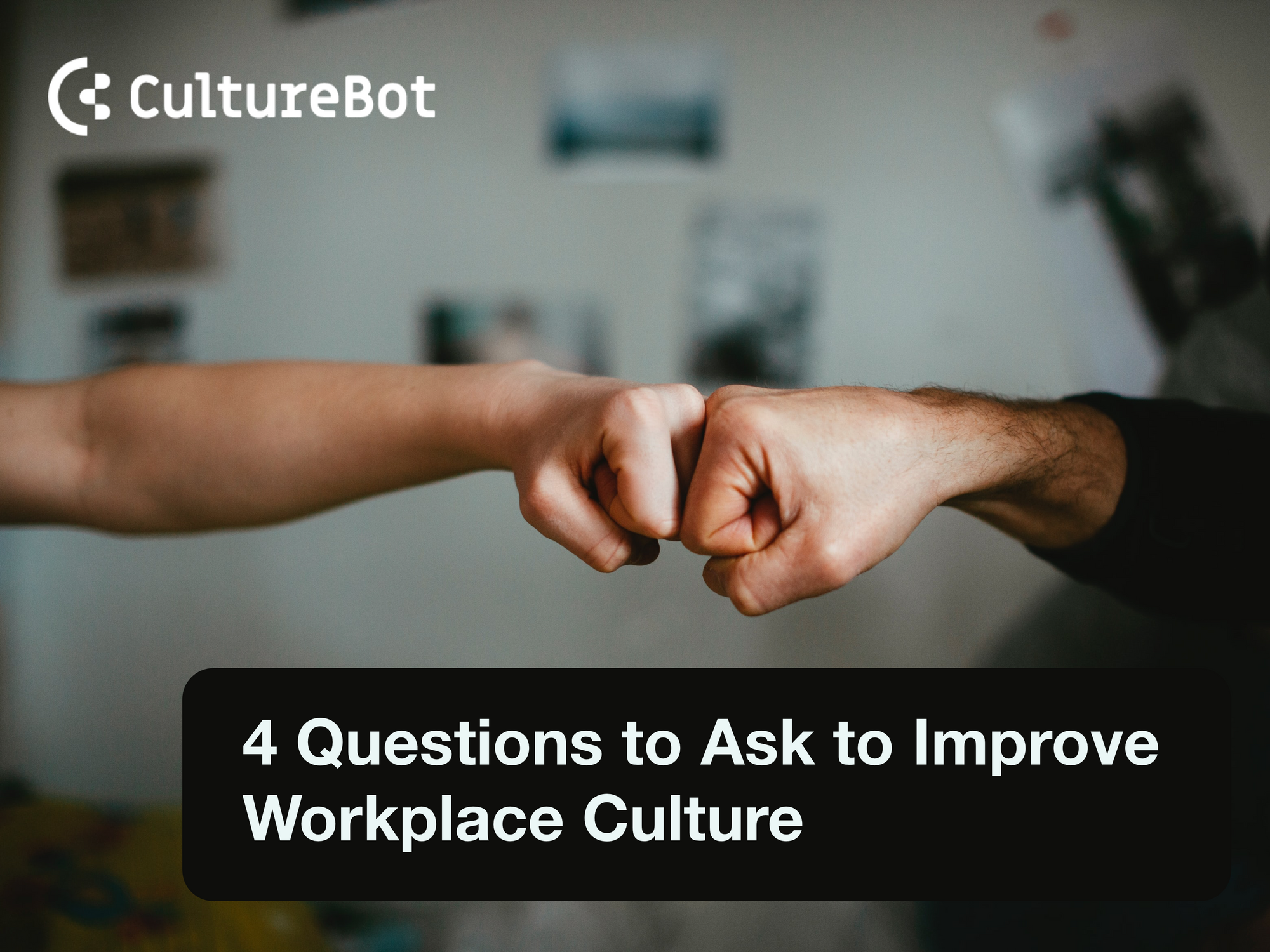4 questions to ask to improve your workplace culture

Every team culture is unique. Teams are made up of people, and people are (of course) unique. Your team culture will indubitably change as time goes on, but have you ever stopped to ask yourself if your team culture is intentional? That is to say, do you:
- know what your cultural values are?
- do your employees know what your values are?
- how would your managers describe your culture to potential candidates?
If you're unsure of or uncertain on any of the questions above, it might be high time you took a pause and asked yourself some key questions about your workplace's culture. Why? Because the most important business decisions are always people decisions and happier, more fulfilled people in your business will pay dividends time and time again. Let's dive into some of these "intentional culture" questions below...
Questions to Build a Better Workplace and a More Intentional Culture
- What sort of engagement do your employees want?

Things like not having your zoom camera on aren't necessarily a negative in terms of employee engagement. Some people and some cultures are more extroverted than others, and if your employees don't have their camera on it doesn't necessarily mean they aren't engaged (and on the opposite side of the coin, those with their camera on are sometimes just as unengaged). Additionally, Slack/Teams "chatter" can be distracting for some and engaging for others. If you want to promote chatter/"chit chat" on slack make sure you're not being super disruptive, as a lot of teams are trying to reduce distractions and not increase them. I'm not saying you have to have no chatter at all, just saying you should be mindful of what your employees want and their work-life balance they're most likely trying to keep.
2. How do you approach team events today?

Team events and "mandatory fun" is always a hot topic in the workplace, especially for remote teams where the fun and events aren't always as exciting as the in-person kind. When approaching the organization of team events, try to bring as many options to the table as possible. You never know what one person/employee is going to gravitate more towards and when you have people in many states & countries it's hard to find single events that all will enjoy. Also keep in mind that many people simply don't like mandatory fun. If not everyone shows up, that is totally fine – it doesn't mean they're a bad employee, just that they're trying to maintain their work-life balance or they're more happy just doing their work heads down and engaging less than your more customer-facing teammates.

3. Are you being inclusive?

This is a big topic, and it's critical for retention. People feeling like they belong to a team is a soft lever for retention. People feeling like they don’t belong to a team is a hard lever for hitting eject. Activities can cut both ways. If you set down this path, you’re probably best to commit to inclusion and a pretty high span of the department/organization that you’re targeting (so that you can sustain that).
4. Are there clear workplace boundaries?

We have all seen it before – retention issues with employees, burnout conversations with direct reports, the list goes on. Your employees generally won't tell you everything you're hoping to hear in a standard eNPS survey, so you'll have to be careful on this topic. Especially in the remote world, connections with work peers falls by the wayside. I don't think that's necessarily bad. I have friends, and I have colleagues. I'm friendly with my colleagues, and some of them will become friends. That's OK. Back to the first and second points above, you don't want to force your employees to have fun – make sure your culture is intentional, inclusive, and most importantly healthy. If you're wondering if your culture is these things already – just look around you. Do employees complain about needing more time off? Do they get overly excited when Friday rolls around? Do they appear worn out and tired on calls? Do their calendars seem overly packed? Again – business goals of course need to be hit and forecasts are forecasts, but everything evens out in the end, so just be mindful of your employees boundaries and take care of them. Give them the extra holiday you're on the fence about, protect their evenings as much as possible, and try to discourage working on the weekends.
That's it this time around. Hopefully the above has given you some food for thought on ways you can actively align your business, culture, and values for the betterment/improvement of your workplace. If you have any thoughts/comments on the topic we'd love to hear them – shoot us a note at support(at)getculturebot.com.
😁 Stay happy & healthy,
~ Amy


